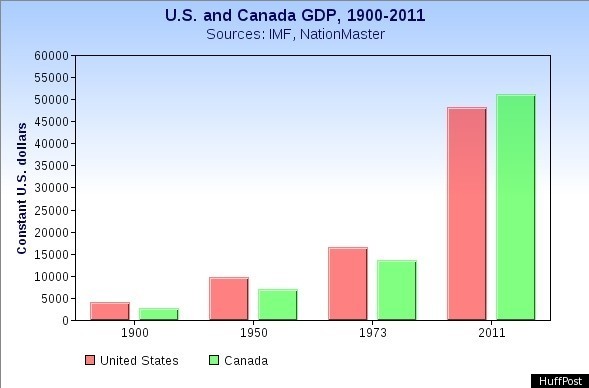It’s hard to get into the holiday spirit in South Florida, simply because it’s so different weather-wise from a Vancouver Christmas; there are no hot chocolates whilst strolling the streets of downtown and admiring the beautifully decorated store windows after ice skating in Robson Square.

I do miss Vancouver so much and bundling up in my favourite ugly Christmas sweater is a tradition I abandoned this year with some sadness. It’s bittersweet until I remember the family of Marie from Haiti who came to America as a refugee many years ago for a better life. She worked two jobs, and her and her husband saved up enough money to buy a house for their four children – one of whom was a twenty years old young man serving in the Marines. He proudly put his life on the line for a country they believed had given them the much-coveted American dream. Instead, the were given a mortgage they should never have been given, as it was clear that they would never be able to pay it off under the terms. Sweet talked into it, they were the victims of so called “robo-signing” and their house was eventually sold at auction for $100. Somehow it didn’t quite go through – they were never given any real answers.
We stood while her family members told of the ordeal they’d had with Wachovia, Chase, Bank of America, and Wells Fargo. We marched to three of these disgusting criminal enterprises and gathered outside of Wells Fargo. Not long after, a security guard emerged from a building that seemed so mighty next to our rag rag group of less than 200 and told us that we’d have to get off of the steps. We did, but that wasn’t good enough — we had to move very far back onto the sidewalk, further than what their property line obviously was. Some of the crowd booed, another woman yelled “You can’t do that! I want MY street! This is MY sidewalk!” She was right. But the now famous “mic check” saying in the Occupy vernacular rang out from a member of the crowd: “She is not the enemy. Don’t treat her like one.” And we repeated it. And then someone, whom I’m proud to say was my own mother and life-long unionist Pauline who recently joined the movement after seeing how much I believed in in, said “She’s just a victim of it all as well!” The security guard held her hands up in the air, shrugged and looked slightly embarrassed and apologetic to the crowd.


Why? Because that security guard is one of us as well and she knows it. Victims of corporate greed and so-called democratic systems that do not represent the people who elected them are everywhere. Just because people don’t march on the street to protest the injustices does not mean that there aren’t millions of us who aren’t outraged with the greed with every fibre of their beings and that there aren’t millions of us who don’t believe in the same things: equality, egalitarianism, and, above all, human dignity. To put food on the table for our families or gifts under the tree for the kids, sometimes people have to take jobs they wouldn’t normally take but do anyway to fulfill life’s duties. It’s hard to turn down a paycheque when you need to keep a roof over your head. The security guard wasn’t murdering people, selling drugs, or pilfering from people. This is not about righteous indignation. It’s about humanity. And that’s the very core of this movement. The anger lies with the people above her who put the masses in this position, not with her.
Marching down the ritziest street in Fort Lauderdale, the looks we got from people were terrible — I have never been looked at like such scum in my life. There were the occasional “thumbs up” signs and clapping, but most of all, we were looked at like garbage. A group comprised of students, veterans, teachers, minimum wage employees. Marching together as one, despite the vast differences in our socioeconomic backgrounds, races, and countries. One of the most beautiful things we can do as people is come together to fight a common enemy and set of circumstances in a peaceful fashion. To be looked at with distain was hard for some to take, but I found it humorous simply because it was so shocking to me.

Keeping wages low, hiking tuition to the point that people live their entire lives trying to pay off their student debts, let alone mortgages, ensures that the common, every day personn will continue to march on the treadmill of this manufactured design of life that we’ve been told to live out to the benefit of no one but the fat cats in current governments and massive corte portions. They loot, give themselves huge bonuses, destroy the earth by raping it of its resources, leaving behind wars, ruined lives, devastation in the quite literal wake of their 200 foot yachts as they sip on Mai Thais in the Med. What do they care? They won’t be around to deal with the aftermath of their crimes. Their generation will never reap what they sow. We will. Very few leaders really care about the next generation. We all know Stephen Harper doesn’t: in a world where Canada is one of its hopes and beacons of morality, he’s Canada’s shame because he is not acting in accordance to the stellar international reputation that we have earned over the decades. He’s Mulroney 2.0. That’s why we all loved Jack so much. And that’s why we need a new leader who will. An NDP leader has yet to be voted on, but whomever wins, we must show confidence in them and unite so that we can form the government in 2015. It’s a dream that is very much possible and still so alive — perhaps more so now than ever.
There’s been a recent development in that family will be allowed to stay in their home until January 3rd, when the case goes back to Broward County courts who have thus far been unsympathetic to the family. Where things go from there is anyone’s guess, but if enough bad publicity is paid to Wells Fargo, perhaps this family will get what is rightfully theirs: their home and their American dream.

The situation down here isn’t good at all. October 15 was Global Day of Action in solidarity with our brothers and sisters of Occupy Wall Street, and I feel like some of the Occupations have lost their way and allowed other causes to overshadow the SOLIDARITY we must show to our fellow humans. I used to have an unfavourable view of our American cousins, because of what happened with Iraq, Afghanistan, and a myriad of other mostly international incidents. But those are not the American people: those are the people who were elected based on lies. The American media is bought and paid by the people who fund the elections of the people who go on to commit these atrocities. This is not tin-foil hat paranoia, but a very true fact. Regardless of your views of the United States, please remember the people, where this started and why, and stand in solidarity with them. I don’t just mean Marc Emery, either.
And please also as we celebrate these next few joyous days with our loved ones how lucky we are to live in Canada, to be Canadians, and to have a right to vote. Exercise your right, because it DOES count. Make the new year a bright one by registering to vote, get involved in something you believe in, and make a change. You’ll change the world and yourself in the process. Everyone wins.
..

Alexandra Taylor Pitt Meadows Today Guest Columnist
The article is a bit gloomy for the holiday season, I realize, but the situation is. But I feel fortunate to be here and to tell these stories to people. It matters that people in Canada care. So thank you for the platform – it means a lot to them and to me. Merry Christmas.




















































